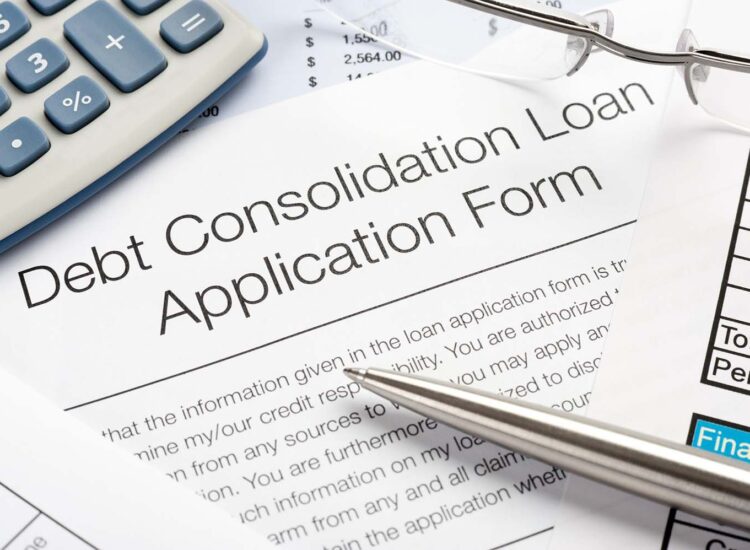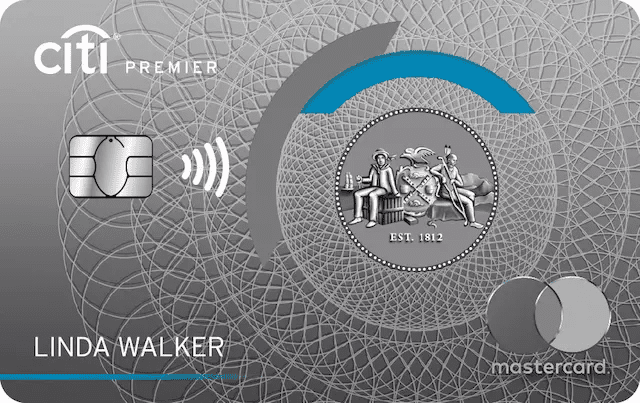Navigating the 2024 refinance landscape demands shrewd evaluation of loan types, fees, and lender reputations. Millions of homeowners face the daunting task of finding the best home loan refinance companies each year. With fluctuating interest rates, various fees, and lender reputations to consider, the process can often feel overwhelming and lead to costly mistakes. This comprehensive guide analyzes top lenders in 2024, weighing their pros and cons to help you make an informed decision about refinancing your mortgage.
Toc
- 1. Top Best Home Loan Refinance Companies in 2024
- 2. Related articles 01:
- 3. Factors to Consider Before Refinancing
- 4. Related articles 02:
- 5. Cash-Out Refinancing: Accessing Your Home Equity
- 6. Navigating the Refinancing Process: A Step-by-Step Guide
- 7. Consumer Protection: Evaluating Lender Reputation
- 8. Emerging Trends in Home Loan Refinancing (2021-2024)
- 9. Recent Developments in the Mortgage Market
- 10. Conclusion: Making Your Refinancing Decision
Understanding Mortgage Refinancing: A Comprehensive Overview
Mortgage refinancing is more than just swapping out one loan for another – it’s a strategic financial move that can potentially save you thousands of dollars over the life of your loan. Whether you’re looking to lower your monthly payments, access home equity, or secure a more favorable interest rate, understanding the nuances of refinancing is crucial.
Top Best Home Loan Refinance Companies in 2024

Finding the best home loan refinance companies involves evaluating various lenders based on their offerings, customer service, and overall reputation. Below are some of the top-rated lenders for refinancing in 2024.
1. SoFi: Digital-First Refinancing Solution
Detailed Analysis
SoFi has emerged as a leading lender in the mortgage refinancing space, primarily due to its innovative approach to lending.
Standout Features:
- Fully digital application process
- Competitive rates with no lender fees
- Flexible cash-out refinance options
Pros:
- User-friendly online platform
- No origination or application fees
- Quick approval process
Cons:
- Limited loan options compared to traditional banks
- Stricter credit requirements
SoFi’s digital-first approach allows homeowners to complete their refinancing applications quickly and efficiently. Their competitive rates and no lender fees make them an attractive option for many borrowers. However, those with lower credit scores may find it challenging to qualify.
2. Better Mortgage: No-Closing-Cost Option
Overview
Better Mortgage is known for its transparent pricing structure and user-friendly online process. They offer zero lender fees, making it easy for homeowners to compare rates without impacting their credit scores.
Pros:
- Transparent pricing
- No lender fees
- Efficient online process
Cons:
- Limited physical branch presence
- May not cater to all borrower types
3. LoanDepot: Customer-Centric Approach
Overview
LoanDepot has gained popularity for its no-closing-cost options. Their “lifetime guarantee” program waives lender fees on future refinances if you use them again, providing substantial savings for repeat customers.
1. https://phucsonglong.com/mmoga-credit-union-home-equity-loan-your-guide-to-lower-rates/
3. https://phucsonglong.com/mmoga-marcus-personal-loan-alternatives-after-discontinuation/
Pros:
- No-closing-cost options available
- Customer loyalty programs
- Comprehensive loan products
Cons:
- Higher interest rates for some loans
- May involve more paperwork than competitors
4. Best Refinance Lenders for Auto-Payment Options
Some lenders offer streamlined auto-payment options that can lead to discounts or lower rates. Companies like Rocket Mortgage and Guaranteed Rate are known for their user-friendly digital platforms, which facilitate easy management of loan payments.
Rocket Mortgage
Rocket Mortgage provides a highly-rated app and customer service, making it easy for borrowers to manage their mortgages digitally. Their innovative technology streamlines the refinancing process, allowing for quick approvals and efficient communication.
Pros:
- Highly-rated app
- Excellent customer service
- Quick loan processing
Cons:
- Higher fees than some online-only lenders
- Limited face-to-face interaction
Guaranteed Rate
Guaranteed Rate offers down payment assistance programs and competitive rates, with a focus on helping borrowers understand their loan options. Their user-friendly online platform makes it easy to navigate the refinancing process.
Pros:
- Competitive rates
- Strong customer support
- Various loan options
Cons:
- Potentially longer processing times
- May not cater to borrowers with poor credit
5. Major National Lenders
Several well-established national lenders continue to dominate the refinancing landscape. Companies like Bank of America, Wells Fargo, and Chase offer a range of products that cater to different borrower needs.
| Lender | Key Features | Pros | Cons |
|---|---|---|---|
| Bank of America | Diverse loan options, Preferred Rewards program | Low down payment options | Limited non-QM loans |
| Wells Fargo | Extensive branch network, varied loan products | In-person service | Higher fees than some online lenders |
| Chase | Competitive rates, robust customer service | Strong financial backing | May require existing accounts |
6. Regional and Local Lenders
Local lenders can provide personalized service and a community-focused approach. Often, these lenders are more flexible with their underwriting criteria and can offer tailored solutions for homeowners looking to refinance.
Benefits:
- Personalized Service: Local lenders often have a better understanding of the local market and can provide tailored advice based on individual financial situations.
- Faster Turnaround Times: Smaller lenders may offer quicker processing times due to less bureaucracy.
Factors to Consider Before Refinancing
Before diving into refinancing, homeowners should evaluate several key factors to ensure that they are making a financially sound decision.
Interest Rates: Fixed vs. Variable
Understanding the difference between fixed and variable interest rates is crucial. Fixed rates provide stability and predictability, while variable rates may offer lower initial payments but can increase over time. Analyzing current market trends can help you determine which option is best for your financial situation. However, if interest rates unexpectedly rise after refinancing, the initial savings could be offset, highlighting the importance of rate predictions and risk tolerance.
Closing Costs and Associated Fees
Closing costs can vary widely among lenders and may include origination fees, underwriting fees, and appraisal costs. It’s essential to understand the total fees involved to determine whether refinancing is financially beneficial. Always ask for a detailed breakdown of costs before proceeding.
Annual Percentage Rate (APR)
Comparing APRs instead of just interest rates gives a more comprehensive view of the loan’s total cost, factoring in all fees associated with the mortgage. Understanding the APR can help you make more informed decisions regarding which lender to choose.
Credit Score Impact on Eligibility and Interest Rates
Your credit score plays a pivotal role in determining eligibility and interest rates. Improving your credit score before applying can lead to better loan terms. Regularly monitoring your credit report and addressing any discrepancies can enhance your chances of securing favorable refinancing options.
Pre-Qualification vs. Pre-Approval Process
Understanding the difference between pre-qualification and pre-approval is crucial when refinancing. Pre-qualification provides a general idea of what you may qualify for based on a basic assessment of your finances. In contrast, pre-approval involves a more in-depth analysis and can provide a specific loan amount.
1. https://phucsonglong.com/mmoga-credit-union-home-equity-loan-your-guide-to-lower-rates/
2. https://phucsonglong.com/mmoga-marcus-personal-loan-alternatives-after-discontinuation/
Loan Terms: Length of the Loan
Consider the loan term when refinancing. Shorter loan terms typically come with higher monthly payments but can save you money in interest over the life of the loan. On the other hand, longer terms may lower your monthly payment but increase the total interest paid.
Cash-Out Refinancing: Accessing Your Home Equity
Understanding Cash-Out Refinancing
Cash-out refinancing allows homeowners to take advantage of their home equity by replacing their existing mortgage with a larger loan and receiving the difference in cash. This can be a strategic way to fund significant expenses, such as home improvements or debt consolidation.
Benefits and Risks
- Benefits:
- Access to cash for investments or improvements
- Potentially lower interest rates compared to personal loans
- Risks:
- Increasing your mortgage balance can lead to higher monthly payments
- Home equity is being converted into debt, which could impact long-term financial stability
Best Cash-Out Refinance Lenders
When looking for cash-out refinance options, consider lenders that specialize in this area. Some of the best cash-out refinance lenders include:
- Better Mortgage: Known for competitive rates and a straightforward application process.
- New American Funding: Offers a variety of cash-out refinance options with flexible terms for eligible borrowers.
Best Cash-Out Refinance Lenders for Bad Credit
Homeowners with less-than-perfect credit may face challenges in finding favorable refinancing terms. However, some lenders cater specifically to this demographic, offering options with higher interest rates but more lenient qualification criteria.
Recommendations
- Carrington Mortgage Services: This lender focuses on helping borrowers with lower credit scores, providing various loan options despite credit challenges.
- Gateway Mortgage: Known for their personalized approach, Gateway works with borrowers who may not qualify with other lenders.
Gathering Necessary Documentation
Before applying for a refinance, homeowners should prepare a comprehensive list of documents. This typically includes:
- Recent pay stubs
- Tax returns from the last two years
- Bank statements
- Current mortgage statements
Having these documents ready can streamline the application process and improve your chances of approval.
Comparing Loan Estimates
Once you receive loan estimates from different lenders, take the time to compare them carefully. Focus on key elements like the APR, closing costs, and loan terms. It’s crucial to understand the overall cost of the loan, not just the interest rate.
The Closing Process
The closing process for a refinance can take several weeks, depending on the lender. Key steps include:
- Appraisal: The lender will likely require an appraisal to determine your home’s current value.
- Title Search: This verifies that the title to your property is clear of any liens or disputes.
- Final Documentation: Ensure that all required documents are signed and submitted before the closing date.
Consumer Protection: Evaluating Lender Reputation
Researching Lender Performance
Researching consumer reports from reputable sources can provide insights into lender performance and customer satisfaction. Look for reports that assess factors such as loan processing speed, customer service quality, and overall borrower satisfaction.
Importance of Online Reviews
Online reviews can be a valuable resource for evaluating lenders. Look for reviews across multiple platforms to get a well-rounded view of the lender’s reputation. Pay attention to trends in feedback, both positive and negative, to gauge potential issues.
Emerging Trends in Home Loan Refinancing (2021-2024)
Market Trends
The mortgage refinance landscape has experienced significant changes since 2021, largely influenced by fluctuating interest rates and economic conditions. Many homeowners took advantage of historically low rates during this period, leading to a surge in refinancing activity.
Lessons Learned
Homeowners have learned the importance of staying informed about market conditions and understanding the impact of interest rate changes on refinancing options. Maintaining a strong credit profile has also become increasingly important as lenders tighten their requirements.
Recent Developments in the Mortgage Market
The refinancing market has seen pivotal changes recently, particularly influenced by external economic factors.
- The Federal Reserve’s interest rate hikes in 2022-2023 significantly impacted refinance rates, leading to reduced attractiveness for many homeowners considering refinancing.
- The rise of online lenders has transformed the mortgage landscape, enhancing competition and consumer choice. Companies like Better.com and Rocket Mortgage have streamlined processes and offered appealing rates, attracting tech-savvy borrowers.
- There has also been an increasing use of AI and automation in the mortgage application process, improving efficiency and customer experience. These technologies are shaping the future of lending by providing tailored options and faster approvals.
Conclusion: Making Your Refinancing Decision
Finding the best home loan refinance companies in 2024 requires careful consideration of various factors, including loan types, fees, and lender reputation. By understanding the different refinancing options available and evaluating lenders based on their offerings, homeowners can make informed decisions that align with their financial goals.
Key Takeaways:
- Compare multiple lenders to ensure you find the best rates and terms.
- Understand your financial objectives and how refinancing aligns with them.
- Consider the long-term implications of refinancing decisions.
- Don’t rush the decision; take time to evaluate all options.
- Seek professional financial advice if needed to navigate complex decisions.
Your refinancing journey begins with knowledge, preparation, and strategic planning. Start exploring your options today and unlock your mortgage’s full potential.










